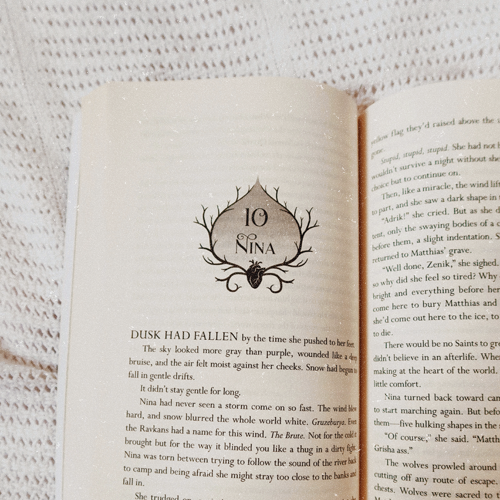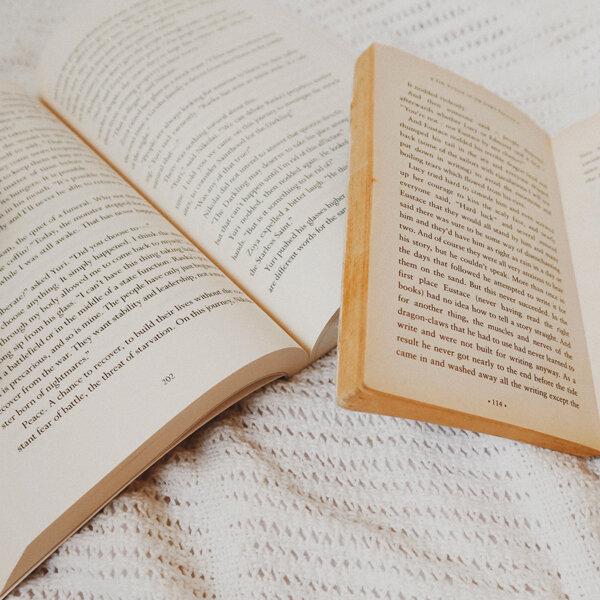How to find the time and energy to write
/@ dreaming by dusk
There are so many barriers and negative thoughts that can eat away at one’s sense of productivity or their creativity when it comes to the art of creative writing. Especially, when you’re a new, aspiring writer when you’re working on your chapbook, story, comic, or novel on the sidelines of your everyday life.
I call these barriers writer’s block, imposter syndrome, self-doubt, exhaustion, perfectionism, fear of the future, and, of course, life in general.
Too many times, and even still today, I have to break through these barriers to my creative writing daily. To stay committed to my current writing project and to not lose sight of why I’m doing it.
I think about that a lot too. Why am I writing this story if I’m not a paid writer? Then I reply to myself: “I’m writing my story because my imagination is too big to only exist inside my head”.
In other words, I write because I enjoy creating worlds, characters, and stories. Also, because the act itself gives me a sense of artistic fulfilment, that is more important.
Today I’m sharing 3 different ways for you to find the time, energy, and motivation to write your next project. Whether it’s a first draft, the last draft, a fanfiction, a poem, or anything else that you love doing. I write this as someone who has been pre-writing and prepping for months because I’m also in need of a sense-check and a motivational post.
SET A SPECIFIC TIME IN YOUR DAY FOR WRITING
Finding the best time to build your writing practice is going to be a struggle at first. You have work, family, and other activities and responsibilities that need your attention. And those things should have your attention, but it doesn’t mean you can’t also have a half-hour or an hour to yourself every day.
One trick I discovered when I was writing the first draft as a university student is that you can make the best out of what you have. If I travelled by bus or if I carpooled, I would put my earphones in and write using an MS Word or the Notes app on my phone. Sometimes, I’d write between 300-500 words just during my commute.
After graduating, during the COVID lockdown in April of this year, I also learned the benefit of waking up earlier in the morning to write. I learned I can easily write 400-500 words in 30 minutes if I ignored any errors in my writing. More than that, it hit me then that understanding yourself and how you behave is pretty important to building a consistent writing routine.
If you’re a morning person, wake an hour earlier, make a cup of coffee, and spend 30 minutes by the laptop. If you’re a night person, wrap a blanket around you, make a cup of tea, and work into the light hours of the night. Figuring out your preference is key to your productivity.
As an example, when my friends and I were still students, I worked best in the morning and the afternoon, whereas one of my best friends always worked late at night into the early hours of the morning.
When you’re setting a specific time to work on your creative writing, take into consideration how you work best (day or night), and think about other times in the day where you’re able to multi-task or you have time to spare. Such as during work or school commutes, while food is cooking in the oven for 40 minutes, when you’re at a coffee shop and you’re on your phone. Keep writing at the time you choose consistently to help build it into a better habit and then a writing routine.
BUILD A MINDSET WHERE WRITING IS A HOBBY, NOT A CHORE
When you’re writing for your enjoyment and to complete a project you care about, it can be easy to get lost in the art of it and begin to treat your craft as a second job. Sometimes, this is great, and other times it is…awful. Work can be stressful, exhausting, and infuriating. These are feelings that you DON’T want to attach to your beloved project.
If you pressure yourself to write more than you’re capable of, it can make you feel uninspired and lacking as a writer. The art of writing can turn into something you have to do/need to do instead of something you want to do. You ‘want’ to do something because you’re passionate about it, and stressing about your progress can diminish that passion.
I see it like this. Nowadays we spend so much time on social media channels or Netflix. That’s not a criticism. It just makes me think that we do these activities every day because we enjoy them. We watch the latest episode because we want to, not because we have to. We explore new art and content because we want to, not because we have to either.
So, maybe the activity of writing can be the same? We can flip the switch and partake in creative writing (or any other craft) as something fun to do during the day. Creative writing can be turned into a hobby in many ways.
First, you can set yourself the smallest possible writing goals (as I’ve mentioned before in a previous post), to write whatever you can in the time you have. Celebrate every victory and milestone, big or small. Second, you can write whatever scene you feel inspired to write instead of the story’s chronological order. Third, you can write according to daily writing prompts. Challenge yourself to write something new and strange every day.
I think the best thing to do is find the sweet spot where your writing is both a fun hobby and a second job. You want to explore your craft and take your time with it, but you also want to set specific goals or due dates to keep yourself on track to finishing your work-in-progress. This way, writing is more of a gentle stroll opposed to a sprint race. This way, your mindset is in the right place; you’re focused and inspired instead of doubting yourself and hating your progress.
FIND WAYS TO KEEP FALLING IN LOVE WITH YOUR work-in-progress
It is so easy to become distracted by newer, shinier ideas or by old ones that have gathered dust and cobwebs over time. Notably when you’re a writer with a filled metaphorical bookshelf of ideas. Staying committed and not becoming distracted is one of the things that can throw off your writing routine the most, in my opinion.
Do you know how easy it is to be distracted? I will watch a fantasy film or tv series and think about my unfinished high fantasy WIP. Or, I’ll watch a science fiction film or tv series and (you guessed it) be inspired by my forgotten sci-fi WIP. Dare I say creative inspiration can fluctuate as much as your mood, so it’s incredibly important to keep your sense of creativity in balance. To keep it focused on ONE project and not others around it. There are many ways to do this.
For one, you can restrict yourself to watching, reading, or listening to media that is in the genre that you’re writing. Such as re-reading your favourite fantasy book series like “Chronicles of Narnia”, or listening to the entire soundtrack of “Game of Thrones”, or watching a film like “The Dark Crystal” or “The Lord of the Rings”.
For another, you can bring your story world to life in ways that don’t include writing. For example, creating your own inspired soundtrack for your story. Or, creating mood boards and vision boards for specific characters, settings, objects, or scenes in your story. You can do this second one using websites like Pinterest, Unsplash, or We Heart It (as long as you don’t give credit back to the original creators of those photos).
A third thing I also like to do is think about the characters before the story takes place. what’s their backstory? Their personality? Their individual stories before the major conflict take place? Or, to think more deeply about the world the story is set in, especially if it is a fantasy or science fiction work because there is always more to it than the surface of it that is shown in the plot.
Continuing to be inspired by the world and characters you created is so important to building a better mindset and writing routine. Inspiring yourself regularly should be a part of your writing rituals. Because losing interest in the project is like forgetting to water a flower (forgive the terrible metaphor, please). If you forget to water it, it dries up, and so can your motivation for something you don’t enjoy anymore. So, always find new ways to show your commitment and love to your project.
Related Posts:
FOLLOW ME ON SOCIAL MEDIA FOR MORE COZY, VINTAGE CONTENT














